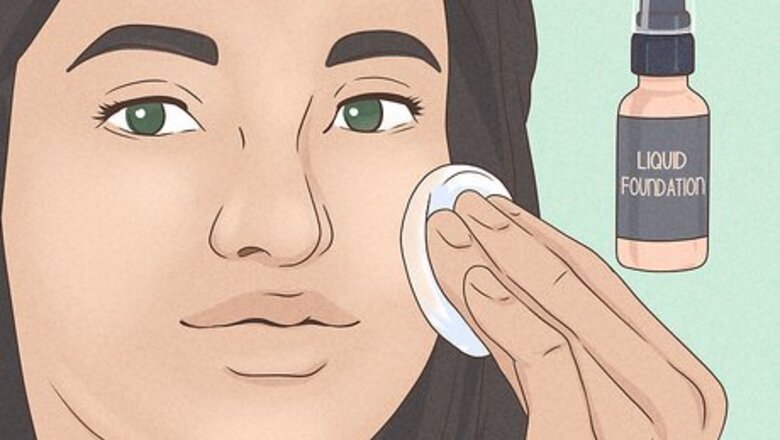
views
Do you apply concealer before or after foundation?
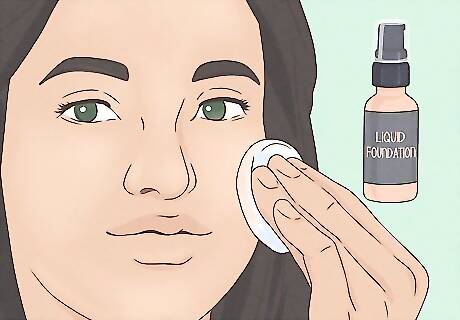
Most makeup artists say to apply foundation first. Foundation is meant to form the base for your look—it evens out your skin and reduces any blemishes or discoloration—so it makes sense to start with it. If you apply concealer first, you might just end up smearing it away from the spots you originally applied it to when you add on foundation! You can go in with concealer first if you have really dark circles or look tired. After that, you’ll still want to apply foundation and if necessary, even another light layer of concealer.
Can you wear concealer without foundation?
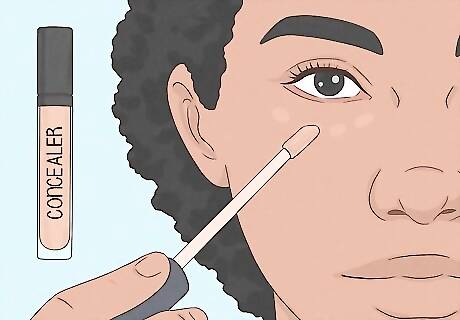
Yes, if you’re going for a more natural, no-makeup look. If you don’t have too many spots to cover up and don’t want to do a full face of makeup, you can just apply concealer to the spots where you need some extra coverage. This can help your face feel lighter and cut down your makeup routine time.
Should concealer be lighter or darker than foundation?
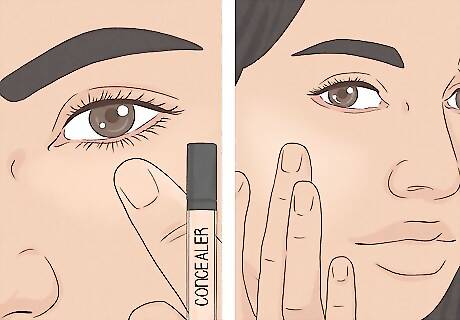
Both, to account for sun exposure and different usages! Daily sun exposure causes your skin tone to shift slightly on a regular basis, so having two shades of concealer handy helps you account for this. Another reason to make sure you have both lighter and darker concealer is that different shades are used for different effects. For instance, use a slightly lighter shade for under eye circles or as a highlight for contouring.
How do you apply concealer?
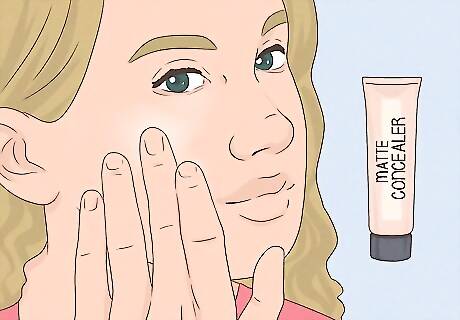
Use your fingers to dab or pat concealer on the spots where you need it. Start under your eyes, then around your nose, mouth, and the center of your forehead—these places tend to have more discoloration. Use gentle tapping or stippling motions, rather than smearing or rubbing, to blending your concealer into your skin. Resist the urge to use too much concealer, since this may cause your look to become cakey and less natural. If you have more acne-prone skin or other skin conditions, you can cover your whole face with concealer if you need it. If needed, you can use a concealer brush or sponge for extra blending. Make sure to set your concealer with powder over your entire face after to keep it in place.
Do you put on moisturizer before applying makeup?
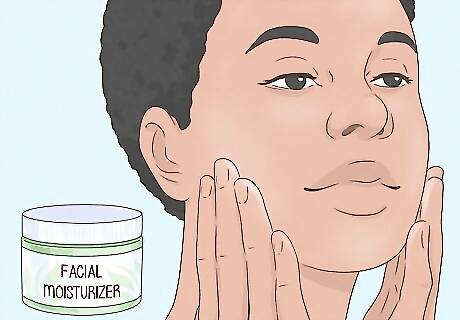
Yes—use a moisturizer to hydrate your skin so you have a clean canvas. Starting with a clean face before applying any other makeup is important for smoothing out product application. It also keeps your makeup in place with minimal creasing or smudging. Apply moisturizer after exfoliating—like after you’ve washed your face or used a cleanser.
Do you need primer before makeup?
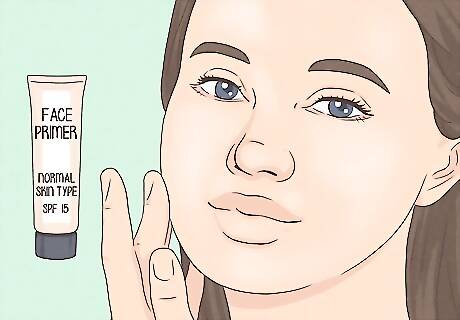
Not necessarily—it depends on factors like skin type and the kind of foundation. If you have more sensitive and oily skin, for instance, primer could cause irritation and breakouts. You could also choose to skip primer if you don’t need your makeup to last the whole day. Since some functions of moisturizer and primer overlap (both create a barrier to prevent foundation from clogging your pores), you might be able to get away with just using a moisturizer to prepare your skin—but it depends on your desired look. Some types of moisturizers are better substitutes for primer than others; others are even designed specifically to double up as primers! Some foundations can actually work better without primer, while others might rely on primer to last longer. Moisturizer isn’t always the perfect substitute for primer, which might have additional effects like mattifying and color correction.

















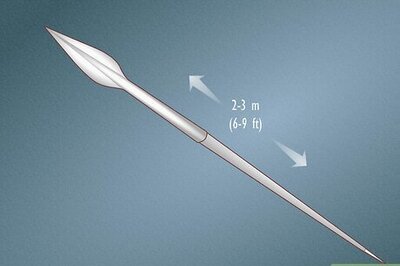


Comments
0 comment